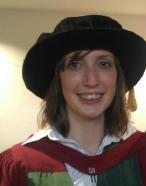Sahar Khalil
In this post, a recent graduate of INLOGOV’s Master’s of Public Administration degree programme presents findings from their dissertation research.
The world of impact measurement has expanded greatly over the past 10 years, with many leading NGOs putting in place rigorous impact measurement tools for their organisations. However, these NGOs have mainly been service provision NGOs, many of whom are funded by government grants. Government granting bodies have mandated impact measurement into their grant mechanism, and thus NGOs which receive this funding have to legally report back on the impact that the funding is having. The same cannot be said for human rights organisations, who do not receive any government funding (in order to preserve their independence in investigating all governmental human rights violations). As an operations manager at a leading human rights organisation in the UK, I have seen at first-hand how my organisation and many others in the field have been grappling with the quest of measuring the impact of their work. In this post, I present the findings from my master’s dissertation, conducted at INLOGOV, which looked in more detail at this issue.
Impact Measurement and Human Rights Research
Human rights work stems from the fundamental principle that all humans should have access to basic rights and focuses on protecting and promoting those rights. These principles, which are set out in the 1948 universal declaration of human rights, are backed by numerous international human rights conventions, declaration and resolutions. Human rights projects can create three types of intended positive changes: firstly, policy and legal reforms; secondly, social changes conducive to human rights norms; and lastly, strengthening civil society work. Impact measurement is about assessing the changes introduced by a intervention on policies, communities and the lives of individuals.
Difficulty measuring impact of human rights work
The difficulty with measuring impact of HROs work stems from the complexity of bringing about social or political change. Despite this complexity of change, most monitoring and evaluation toolkits currently used in the NGO sector follow the Linear Theory of Change. This model looks at change as a logical sequence of events, where inputs (funding and resources) lead to specific outputs and outcomes, which ultimately leads to change. This model follows that outcomes can be predicted on the basis of inputs. But change in human rights conditions rarely follow such logical paths. Project implementation teams face limitations in the influence they can exert over the social change process. They can have near total control over project inputs (staffing, funds raised, resources used, and so on) and activities and outputs, but virtually no control over outcomes and impact. No matter how clearly an organisation articulates a pathway to a desired long-term policy goal, it would be virtually impossible to name, predict or explain all the variables that might be at play within that change process. In addition to this, change could be slow and stagnant, while at other times it occurs in sudden leaps and in unpredictable ways.
For these reasons, along with other limitations HROs face, development of impact measurement tools in the sector has been lagging.
Findings from my research
Impact measurement of HROs is under researched, and what little research has been written on this topic is now outdated. I wanted to assess the current practices of human rights organisations in the UK. I spoke to 4 leading experts from major HROs in the UK of varying sizes and funding. The findings are summarised below:
- Not all organisations are systematically measuring impact. Some have a clearly developed strategy towards measuring impact; others don’t measure impact in a systematic way but have some limited practices in place. One organisation interviewed still relies on anecdotal evidence of the effectiveness of its work;
- Organisations who had systemic impact measurement practices in place stated that having a clear definition of impact that was understood by all employees was a vital and core component of their impact measurement strategy;
- Of the organisations that had a systemic impact measurement strategy in place, some are carrying out measurements using in-house staff, whereas others are outsourcing the work to independent private contractors;
- Some of these organisations found the Linear Theory of Change useful in helping them confine the scope of impact measurement work, which would otherwise be too broad to assess;
- Lastly, while the practices varied, all respondents agreed that there are several benefits to implementing impact measurement practices. Impact measurement has helped them improve the quality and effectiveness of their work, raise more funds, and has improved the transparency and accountability of the organisation in the eyes of the public and stakeholders.
Sahar Khalil is an operations manager at Human Rights Watch and graduate of INLOGOV’s Masters of Public Administration distance learning degree programme.




